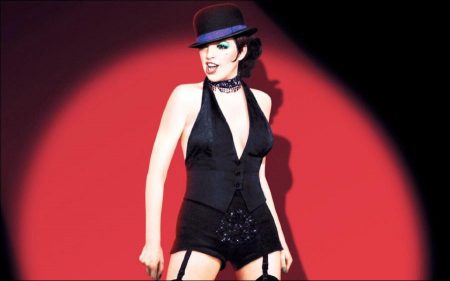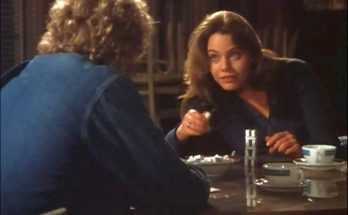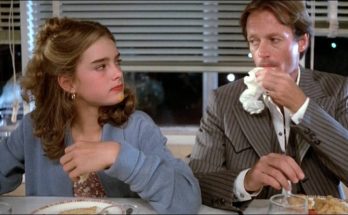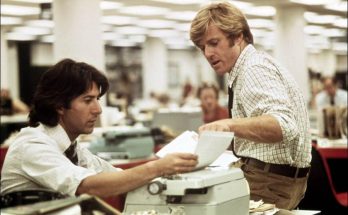Taglines: Life is a cabaret.
Cabaret movie storyline. Cambridge University student Brian Roberts arrives in Berlin in 1931 to complete his German studies. Without much money, he plans on making a living teaching English while living in an inexpensive rooming house, where he befriends another of the tenants, American Sally Bowles. She is outwardly a flamboyant, perpetually happy person who works as a singer at the decadent Kit Kat Klub, a cabaret styled venue.
Sally’s outward façade is matched by that of the Klub, overseen by the omnipresent Master of Ceremonies. Sally draws Brian into her world, and initially wants him to be one of her many lovers, until she learns that he is a homosexual, albeit a celibate one. Among their other friends are his students, the poor Fritz Wendel, who wants to be a gigolo to live a comfortable life, and the straight-laced and beautiful Natalia Landauer, a Jewish heiress. Fritz initially sees Natalia as his money ticket, but eventually falls for her. However Natalia is suspect of his motives and cannot…
Cabaret is a 1972 American musical film directed by Bob Fosse and starring Liza Minnelli, Michael York and Joel Grey.[3] The film is set in Berlin during the Weimar Republic in 1931, under the presence of the growing Nazi Party.
The film is loosely based on the 1966 Broadway musical Cabaret by Kander and Ebb, which was adapted from the novel The Berlin Stories (1939) by Christopher Isherwood and the 1951 play I Am a Camera adapted from the same book. Only a few numbers from the stage score were used for the film; Kander and Ebb wrote new ones to replace those that were discarded.
In the traditional manner of musical theater, every significant character in the stage version sings to express his / her own emotion and to advance the plot. In the film version, the musical numbers are entirely diegetic, taking place inside the club, with one exception (“Tomorrow Belongs to Me”), the only song not sung by either the MC / or Sally. In the sexually charged “Two Ladies”, about a ménage à trois, the Master of Ceremonies is joined by two of the Kit Kat girls.
After a box-office disaster with his film version of Sweet Charity in 1969, Bob Fosse bounced back with Cabaret in 1972, a year that would make him the most honored director in show business. And he was not the only winner in this case, as the film also brought Liza Minnelli her first chance to sing on screen and win the Academy Award for Best Actress. With Academy Awards for Best Supporting Actor (Joel Grey), Best Cinematography, Best Art Direction, Best Sound, Best Original Song Score and Adaptation, and Best Film Editing, it holds the record for most Oscars earned by a film not honored for Best Picture. However, it is listed as number 367 on Empire’s 500 greatest films of all time.[4]
Cabaret opened to glowing reviews and strong box office, eventually taking in more than $20 million. In addition to its eight Oscars, it won Best Picture citations from the National Board of Review and the Hollywood Foreign Press Association and took Best Supporting Actor honors for Grey from the National Board of Review, the Hollywood Foreign Press, and the National Society of Film Critics. But the biggest winner was Fosse. Shortly before the 45th Academy Awards, he won two Tonys for directing and choreographing Pippin, his biggest stage hit to date. When months later he won the Primetime Emmy Award for directing and choreographing Liza Minnelli’s television special Liza with a Z, he became the first director to win all three awards in one year.
Cabaret (1972)
Directed by: Bob Fosse
Starring: Liza Minnelli, Michael York, Helmut Griem, Joel Grey, Fritz Wepper, Marisa Berenson, Helen Vita, Sigrid von Richthofen
Screenplay by: Jay Presson Allen
Production Design by: Rolf Zehetbauer
Cinematography by: Geoffrey Unsworth
Film Editing by: David Bretherton
Costume Design by: Charlotte Flemming
Art Direction by: Hans Jürgen Kiebach
Music by: John Kander, Ralph Burns
Distributed by: Allied Artists
Release Date: February 13, 1972
Views: 165




